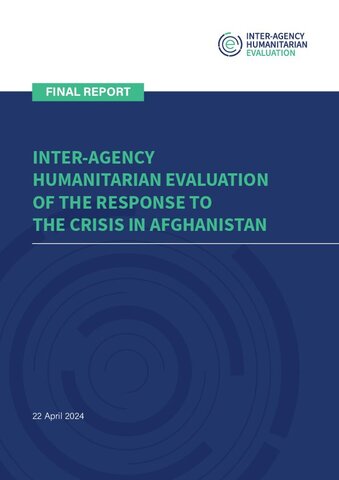
The evaluation finds that the humanitarian response provided critical support to millions of vulnerable Afghans by alleviating food insecurity and economic burdens on households, preventing the deterioration of health services and helping to sustain economic stability.
Many of the factors that complicated the response in Afghanistan were external and not under the control of humanitarian actors; nevertheless, the response only partially addressed the enormous scale and severity of needs. Preparedness for plannable scenarios was insufficient, as were accountability to affected populations and the integration of protection throughout the response. The evaluation makes six recommendations to improve the future response, including the creation of a support framework for financing and implementing flexible readiness plans.
